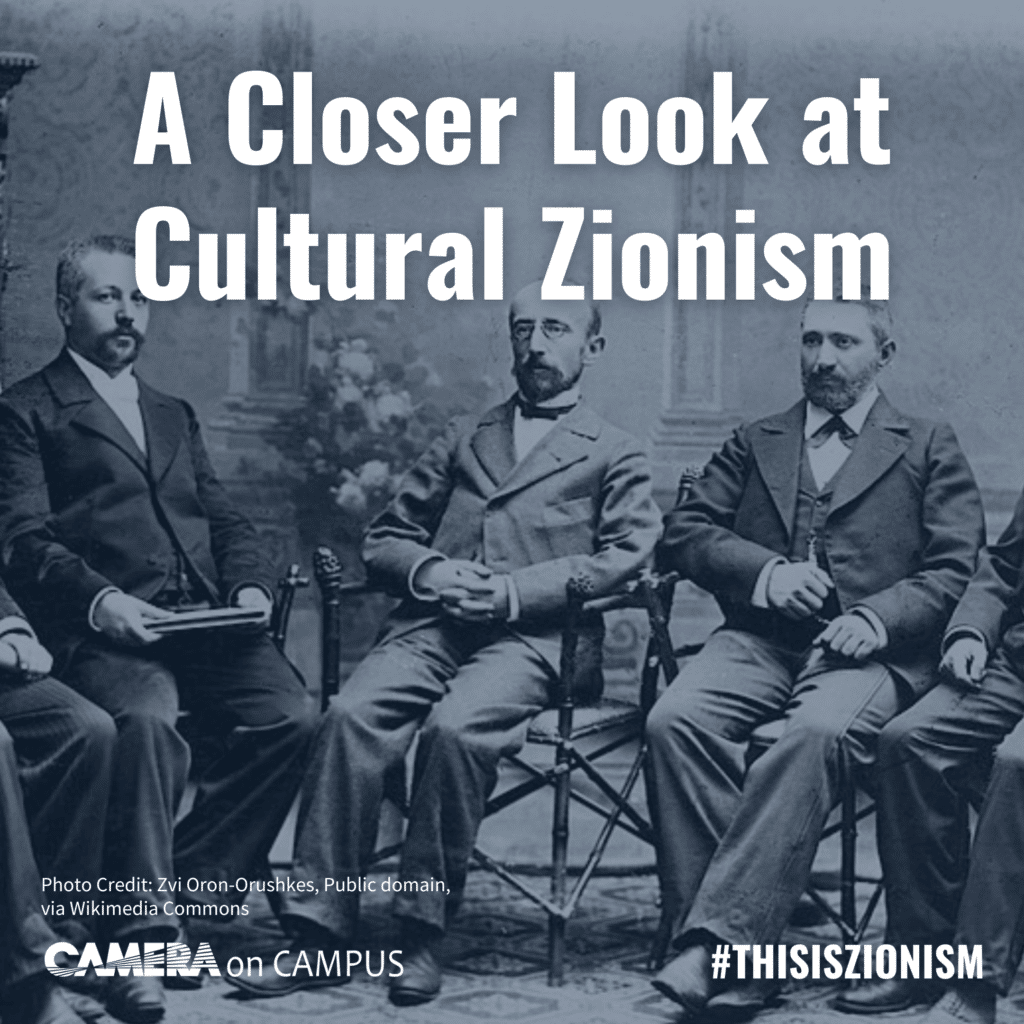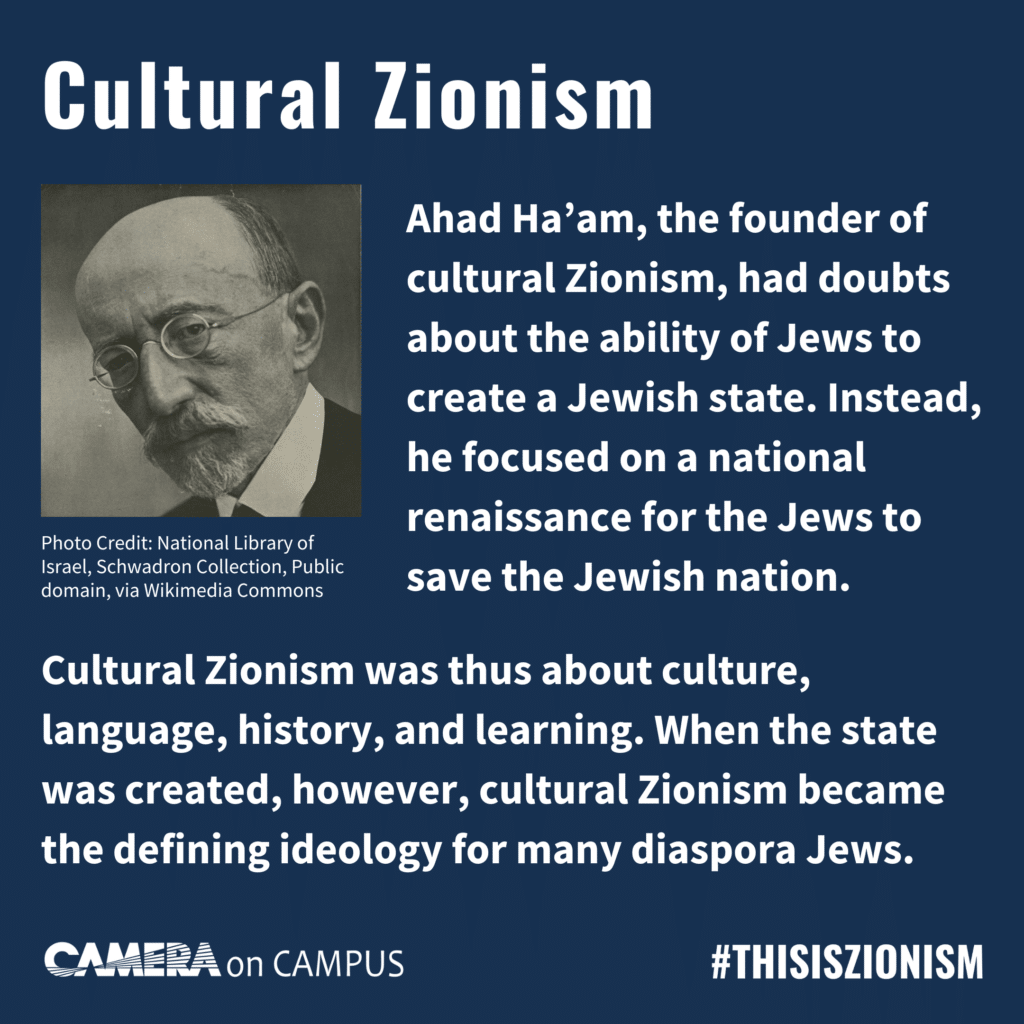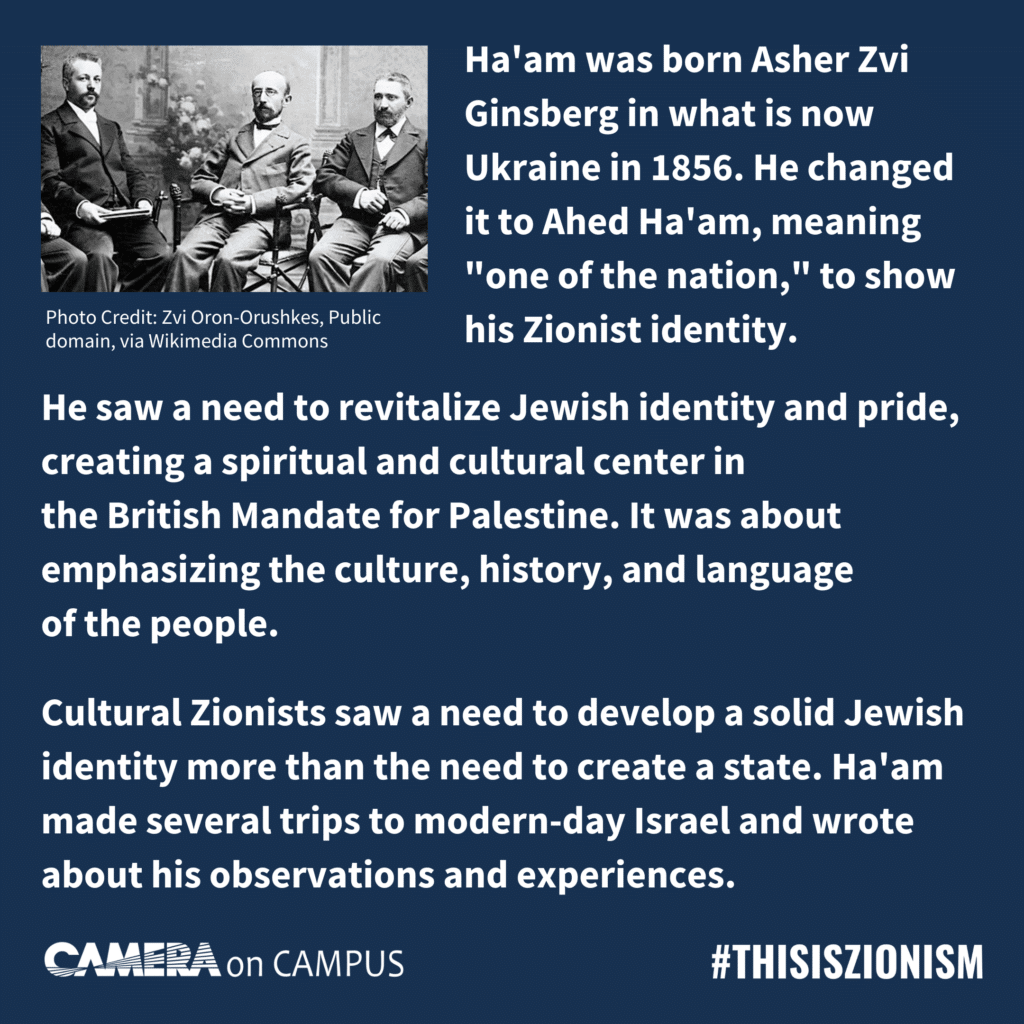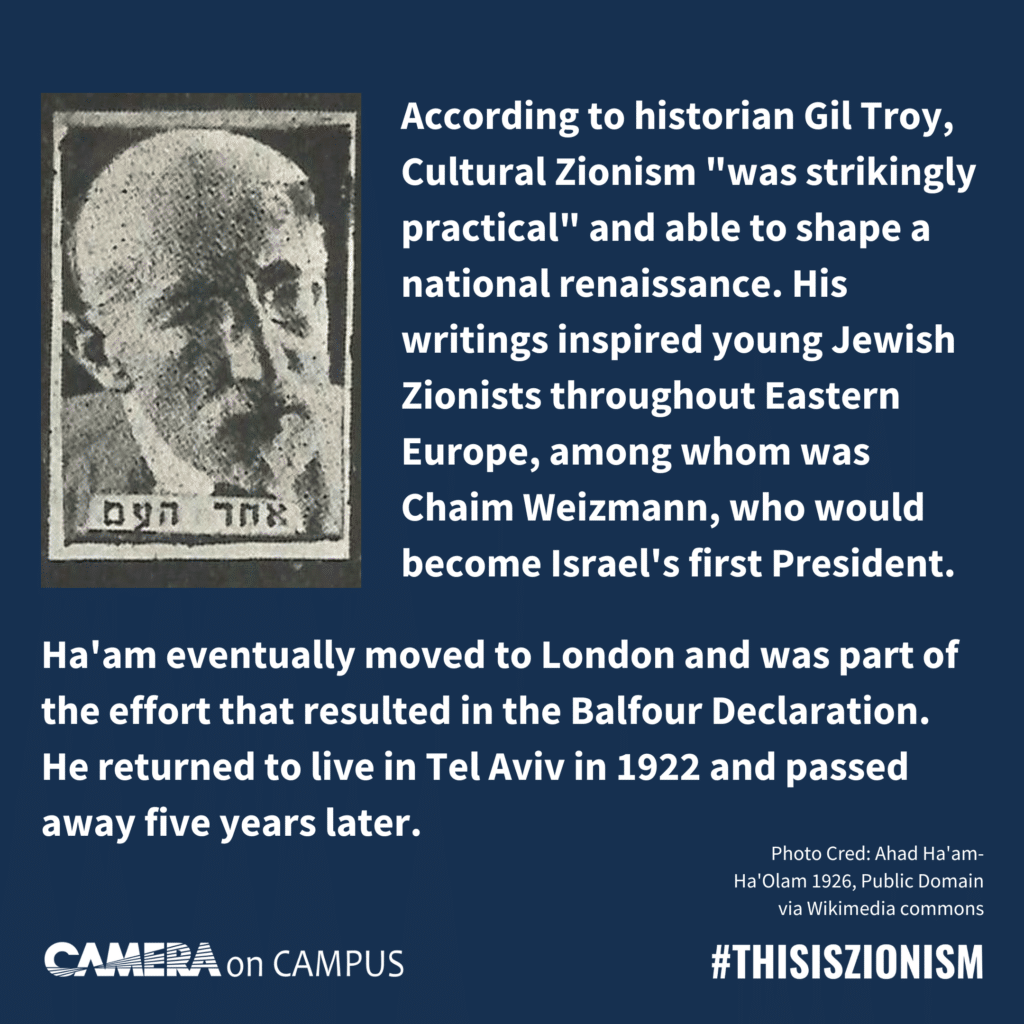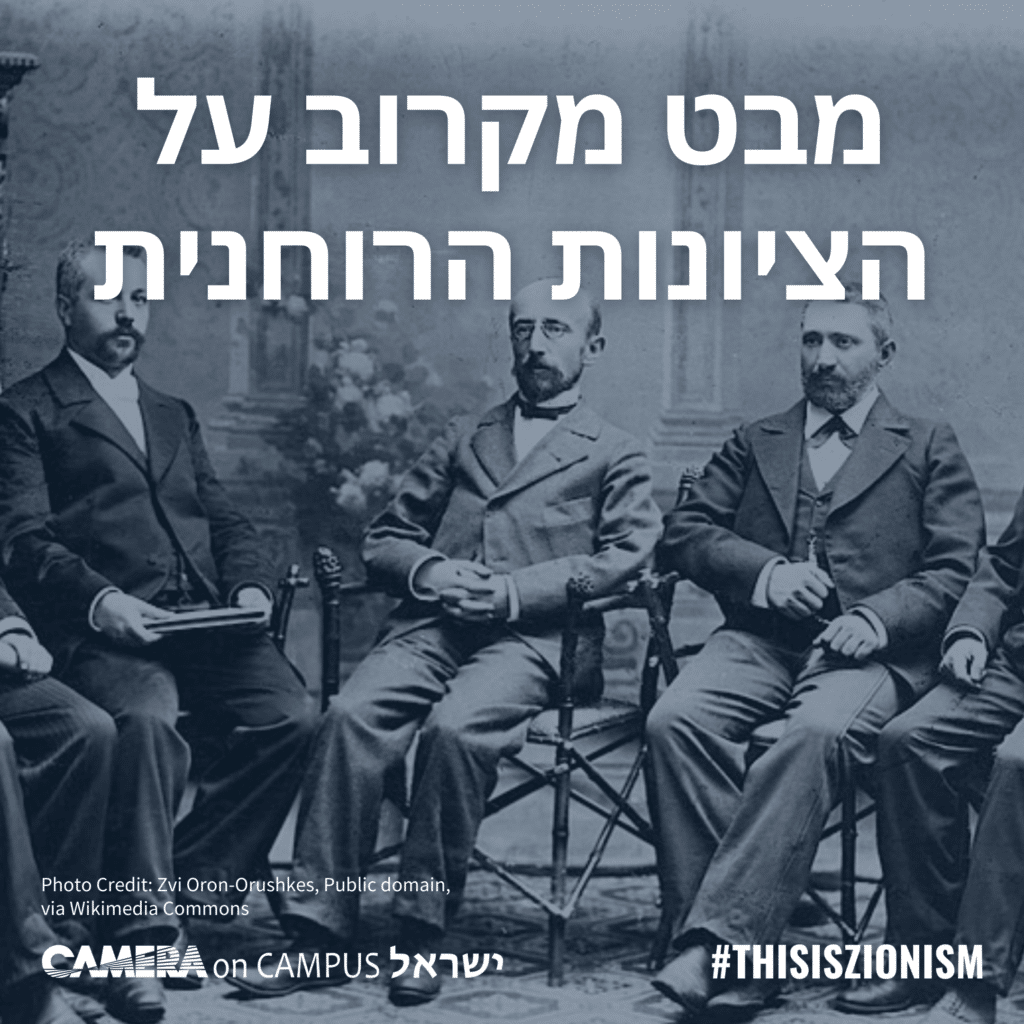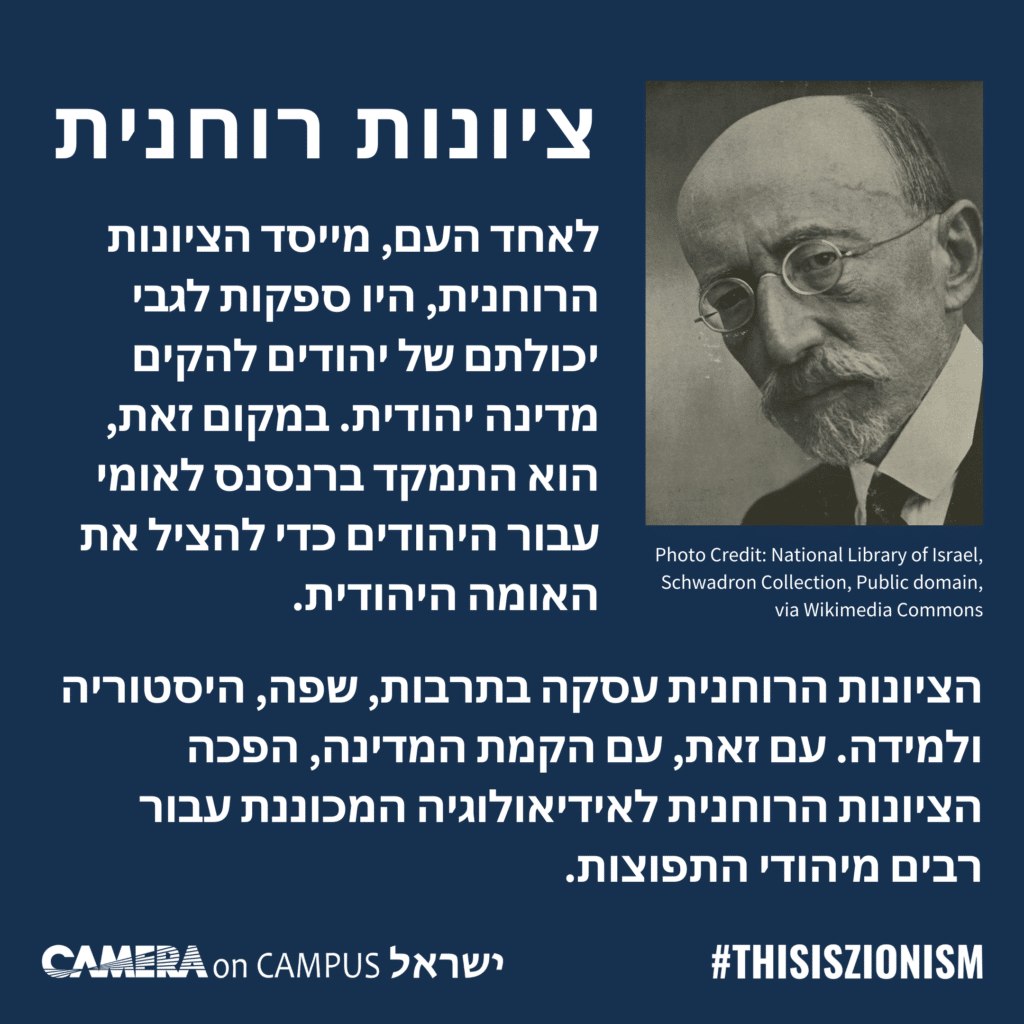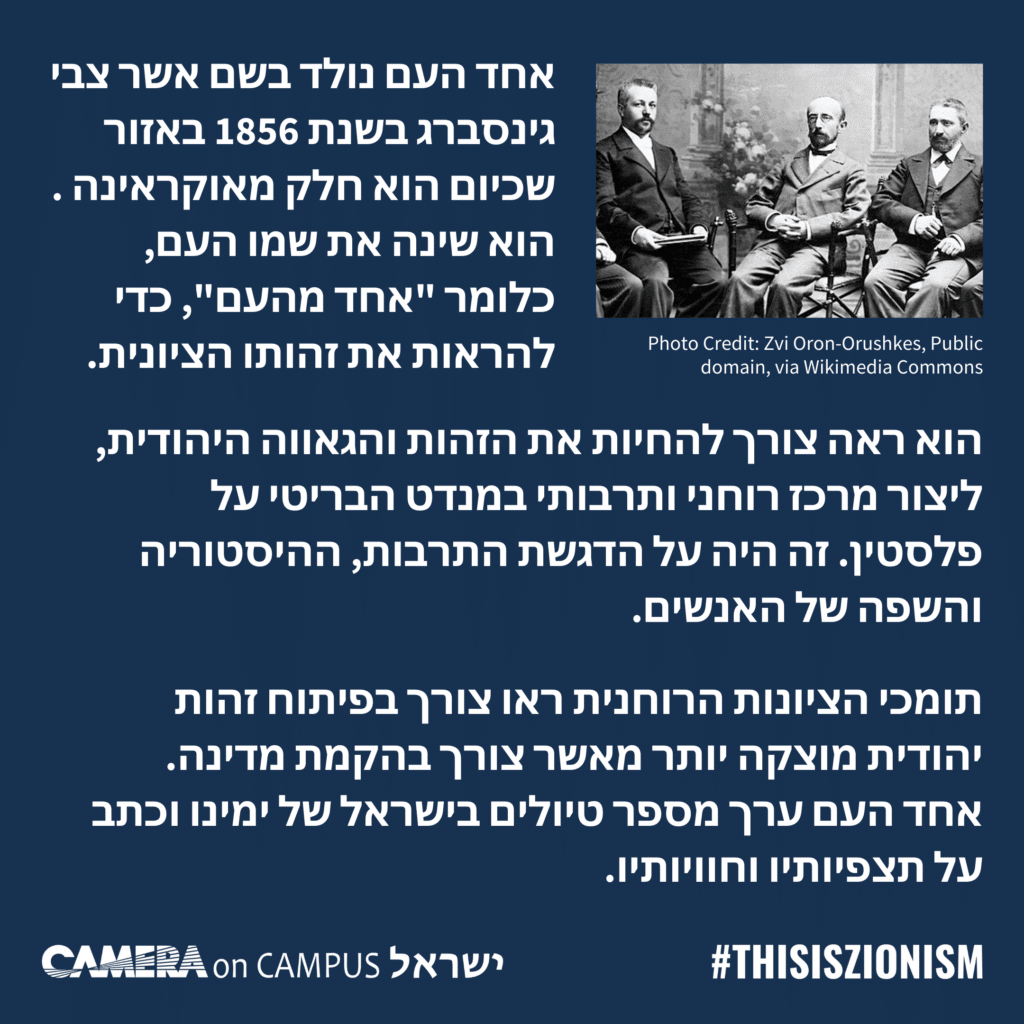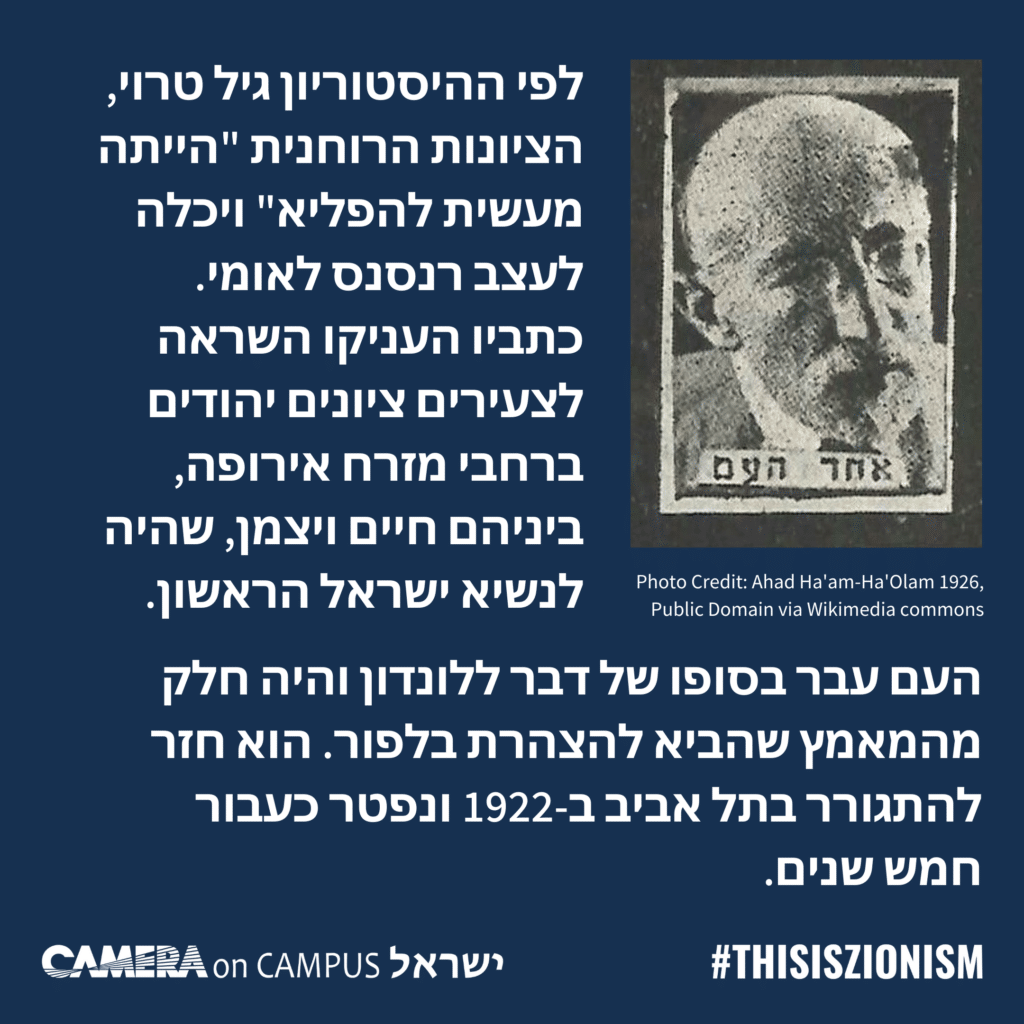Cultural Zionism
Ahad Ha’am, the founder of cultural Zionism, had doubts about the ability of Jews to create a Jewish state. Instead, he focused on a national renaissance for the Jews to save the Jewish nation. Thus his form of Zionism became about culture, language, history, and learning.
When the state was created, however, it became the defining ideology for many diaspora Jews.
Ha’am was born Asher Zvi Ginsberg in what is now Ukraine in 1856. He changed it to Ahad Ha’am, meaning “one of the nation,” to show his Zionist identity.
He saw a need to revitalize Jewish identity and pride, creating a spiritual and cultural center in the British Mandate for Palestine. It was about emphasizing the culture, history, and language of the people. Cultural Zionists saw a need to develop a solid Jewish identity more than the need to create a state. Ha’am made several trips to modern-day Israel and wrote about his observations and experiences.
According to historian Gil Troy, Cultural Zionism “was strikingly practical” and able to shape a national renaissance. Ha’am’s writings inspired young Jewish Zionists throughout Eastern Europe, among whom was Chaim Weizmann, who would become Israel’s first President.
Ha’am eventually moved to London and was part of the effort that resulted in the Balfour Declaration. He returned to live in Tel Aviv in 1922 and passed away five years later.
One of the most influential cultural Zionists was Eliezer Ben-Yahuda. He moved to the Ottoman Empire in 1881 to revive and modernize Hebrew. His work resulted in Hebrew becoming the prevailing, spoken language in the land of Israel by 1922.
“If a language which has stopped being spoken, with nothing remaining of it save what remains of our language – (if there is such a language) can return and be the spoken tongue of an individual for all necessities of his life, there is no room for doubt that it can become the spoken language of a community.”
—Eliezer Ben-Yahuda
Source: “The Zionist Ideas: Visions for the Jewish Homeland—Then, Now, Tomorrow” by Gil Troy
jewishvirtuallibrary.org/spiritual-zionism

